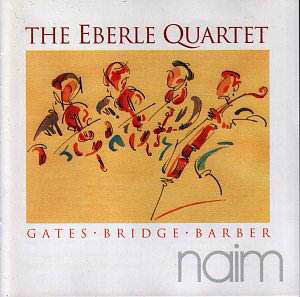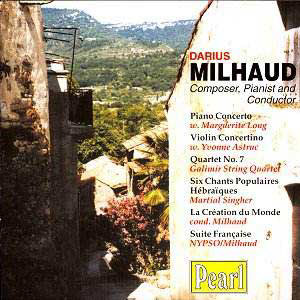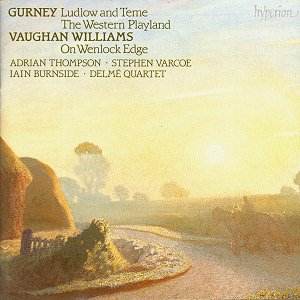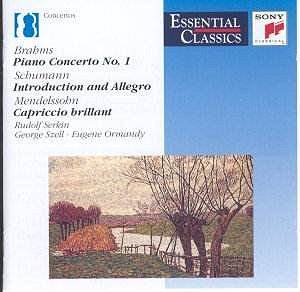 Composer: Philip Gates
Composer: Philip Gates
Works: String Quartet No. 1 in A minor; Frank Bridge: Three Idylls, Novelletten; Samuel Barber: String Quartet Op. 11
Performers: Eberle Quartet (Daphne Moody and Jennifer Gibbs – violins, Moira Alabaster – viola, Muriel Daniels – cello)
Recording: Jacqueline du Pré Music Building, St. Hilda’s College, Oxford, 28th – 30th January 1997
Label: Naim
The Eberle Quartet’s latest release presents an intriguing juxtaposition of works by contemporary British composer Philip Gates alongside the more established repertoire of Frank Bridge and Samuel Barber. Gates, approaching the zenith of his creative output, imbues his String Quartet No. 1 with a rich tapestry woven from the threads of Celtic poetry, exploring a sound world reminiscent of the early twentieth century. This disc offers a refreshing perspective on Gates’ work, which is rooted in folk idioms and modal harmonies, while also inviting listeners to engage with the nuanced expressions of Bridge and Barber.
Gates’ String Quartet No. 1 is a noteworthy addition to the contemporary string quartet canon. Its lyricism and emotional depth resonate with the pastoral influences of British composers such as Moeran and Vaughan Williams, yet it possesses a distinctive voice that is unmistakably Gates. The work unfolds with a yearning intensity, particularly in the central Lento, where the quartet achieves an arresting lyrical quality. The outer movements, characterized by their dance-like energy, are equally compelling; the performers navigate the shifting rhythms and folk-inspired motifs with an admirable sense of cohesion and dynamism. The Eberle Quartet’s interpretation of this work is both technically assured and deeply expressive, ensuring that Gates’ nostalgia-infused narrative is vividly realized.
In contrast, the selections from Bridge provide a different yet complementary listening experience. The Three Idylls, while beautifully rendered, might not claim the definitive performances that some listeners may seek. The Eberle Quartet’s faster tempo in the second Idyll offers a fresh take, though it risks undermining the contemplative nature intrinsic to Bridge’s style. The Novelletten, though played with sensitivity, are interpreted at a slower pace, which may draw attention away from their inherent buoyancy. Comparatively, the Maggini Quartet’s recordings of Bridge’s works present a more compelling argument for those seeking an authoritative rendition, particularly in the context of the rich harmonic language for which Bridge is known.
Barber’s String Quartet Op. 11 is rightly positioned as a highlight of the disc, allowing listeners to draw parallels between this chamber work and the more widely known Adagio for Strings. The Eberle Quartet captures the drama of the outer movements, framing the poignant Adagio with a clarity that illuminates its thematic development. The performers’ attention to phrasing and dynamic nuance adds layers to Barber’s intricate textures, making the comparison between the quartet and its orchestral counterpart particularly revealing. The recording quality is exemplary, characteristic of Naim’s high standards; the acoustic space captures the quartet’s sound with remarkable fidelity, allowing each voice to emerge distinctly while contributing to the overall ensemble texture.
This release is an essential acquisition for those interested in the evolving landscape of British string quartet music. Gates’ contribution alone justifies the disc’s value, presenting a significant work ripe for exploration and appreciation. While the interpretations of Bridge and Barber may invite comparison with other recordings, the Eberle Quartet’s dedication and skill shine through. For connoisseurs who yearn for the rich tradition of composers like Moeran, this disc is a compelling testament to the enduring relevance of the string quartet repertoire.



